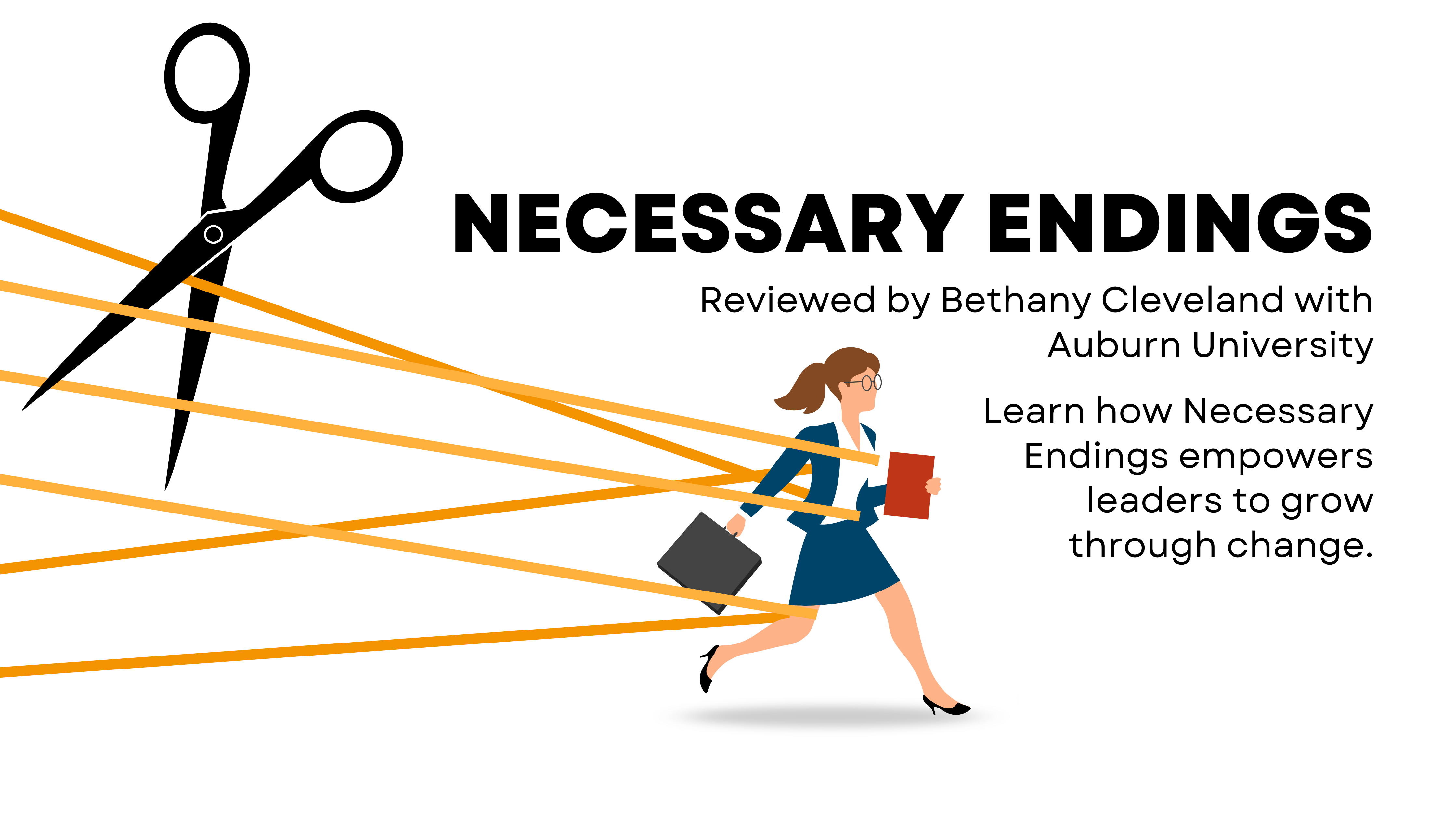Posts
Contact
Kayla Machen
CPED
Email: kmachen@uada.edu
University of Arkansas System Division of Agriculture
Cooperative Extension Service
2301 S. University Avenue
Little Rock, AR 72204
Necessary Endings by Dr. Henry Cloud

Our May Leadership Lunch & Learn, hosted by the University of Arkansas System Division of Agriculture in partnership with the Southern Region Program Leaders Network, offered a timely and thoughtful exploration of Necessary Endings by Dr. Henry Cloud. Bethany Cleveland, an instructional designer and civil rights coordinator with the Alabama Cooperative Extension System, led this month’s book review and brought deep insight to a topic that impacts us all knowing when to let go.
In Necessary Endings, Cloud presents a powerful metaphor for pruning: to foster growth, we must intentionally cut away what's no longer serving us. Whether in business, relationships, or personal growth, Cloud emphasizes that not everything healthy is worth keeping – sometimes “good” is the enemy of the “best”.
Why Endings Matter
During the presentation, Cleveland emphasizes that endings – though often uncomfortable – are a necessary part of healthy leadership, personal growth, and organizational development. Cleveland summarized Cloud’s central thesis: Growth and success are impossible without the ability to end things that no longer serve us.
Cloud’s message is rooted in emotional intelligence, behavioral psychology, and leadership science. His goal is not to encourage recklessness or disengagement, but rather to equip the reader with the skills and clarity to let go of outdated strategies, toxic environments, ineffective programs, and even relationships when needed.
Key Takeaways From The Book
- Pruning for growth: Cloud encourages us to evaluate what is healthy but distracting, what is sick and possibly unrecoverable, and what is clearly dead weight. Letting go even of “good” things. Creates room for transformation
- The Three Types of People: Leaders are challenged to recognize wise, foolish, and evil individuals. Wise people respond to feedback. Foolish people avoid responsibility and need consequences more than conservation. Evil people intend to harm and must be removed from our lives or organizations.
- Hope vs. Reality: Are we clinging to potential, or is there real evidence of change? False hope can keep us stuck in draining situations. True growth requires clarity and grounded hope.
- Facing Resistance: Change is hard because it’s uncomfortable. Cloud reminds us of that endings often require grief and courage, but they can be reframed as completions rather than failures.
- The Life Cycle of Everything: From programs to partnerships, everything has a season. Knowing when to move on is an act of wisdom – not weakness.
Cleveland’s thoughtful presentation included journaling prompts and reflection questions designed to help participants personally apply Cloud’s concepts. For Extension professionals, these insights are especially valuable when programs or roles evolve and require us to gracefully step aside.
To close the session, Cleveland offered this powerful statement: Endings are not just decisions. They are invitations into growth, integrity, and alignment.

Cleveland reminds participants that endings require grief, courage, and clarity – but when done well, they create space for what’s next.
Find the presentation slides here
About the Reviewer
Bethany Cleveland is an instructional designer and civil rights coordinator for the Alabama Cooperative Extension System, and she has a PhD in Adult Education. She has been with ACES since 2021. She is responsible for creating professional development training for ACES employees and travels each year to several counties within Alabama to conduct civil rights reviews for federal compliance. She also likes to make functional pottery such as mugs and bowls and loves pet dogs on her daily walks.